|
A few people have written me, telling me I'm lucky to have the opportunity to own and use Buchla equipment. Due to a unique set of circumstances, I guess I may be. This won't be a history lesson, but I'm sure you all know that since the discovery of electricity, radio, and electronics in general, there have been inventors and composers trying to make music with it. Various devices, from the theremin (invented by Léon Theremin) to the crude electronics utilized by people such as Louis and Bebe Barron (creators of the fantastic 'Forbidden Planet' soundtrack) have surfaced from time to time. It wasn't until the early 60's, however, that what we know as the 'synthesizer' came into being. There was Dr. Robert Moog, who created the instrument that bears his name, as well as Alan R. Pearlman, creator of the ARP synthesizer. These two are by far the most famous. What sets these two apart is the fact that, from the beginning, they went for the mass market, selling the stuff to rock stars of the era and recording studios. Walter (now Wendy) Carlos made the Moog famous with the landmark recording, 'Switched-On Bach'. Moog synthesizers appeared on a wide variety of recordings, everything from the Monkees to the Byrds. Both companies also married their stuff to the traditional piano/organ keyboard. Then, there was that 'other guy', Don Buchla, working on the West Coast. Buchla was from a more academic background. From the beginning, he primarily dealt with universities, and various avant garde composers, in particular, Morton Subotnick. In his early student days, Buchla composed pieces that used the recorded sounds of insects, among other things. His head was truly in a different place! Buchla did not think of the traditional keyboard as the natural thing to use as a primary controller. He did produce one, but he preferred touch plates to trigger various events within a system. He did not even like the word 'synthesizer'. To him, the word implied that it was meant to emulate traditional instruments. He preferred the term 'electronic musical instrument'. Buchla also did not go for the mass market. His instruments were done on a customer to customer basis, being assembled by a small staff to order, like a high end automobile. This last point is why Buchla did not become a household name like Moog and ARP. Among electronic music enthusiasts, it's also what gives Buchla the mystique it still has to this day. The fact that it was never really mass produced is also what makes Buchla gear so hideously rare. Buchla modules are fantastically open ended and open to a wide variety of experimentation. I won't go on and on. I'll get to the point of why I'm writing this. Buchla modules are rather high priced. But, there's no need to lament the fact that you can't afford them. There are a few companies that have produced, in Eurorack format, virtual Buchla clones, for much less money. Here's a few: Verbos Electronics Tom Verbos started out his career servicing Buchla equipment. The modules he produces use various Buchla modules as a starting off point. He has elaborated and added his own touches to classic Buchla designs. These second two have done the same as Verbos. They've re-interpreted Buchla functions in their own systems. All three of these companies also emulate, in varying degrees. The external design aesthetics of Buchla equipment, right down to the lettering typeface. If you own a Buchla system, these units will look and work very well with it. Of course, Buchla modules are not in Eurorack format, but the audio and control voltage lines will work with any Eurorack equipment you do own. The only thing you'll need are adapter cords for the control voltage lines. Buchla uses banana jacks and cables. All other Eurorack modules use standard 3.5mm patch cables. I made my own by soldering my own cables. I put a 3.5mm phone plug on one end, and a banana jack on the other. You can buy this stuff on line. The tip is the hot end. You will not need to use the ground.
This piece is not in any way intended to be any sort of put down of Buchla. Don Buchla, sadly passed away a couple of years back, but the company is still in operation producing the new 200e modules. I wish them all the best. As I mentioned in a previous EC piece, the 'Wogglebug' invented by my friend Grant Richter, is based on the Buchla random voltage source. Some of his other modules, by his Wiard synthesizer company also made use of Buchla circuit designs, notably, the 'Borg Filter' which is a combination of Buchla and Korg technology (hence the name!!) As long as we're on the subject of Buchla 'DNA' existing elsewhere, check out the Wiard Synthesizer Company. Grant Richter no longer owns it. He sold it to a woman named Cary Grace, and american expat now residing in England. She produces the various Wiard modules, including the original version of the 'WoggleBug'. Cary is a fantastic musician, technician, producer and all around synthesizer freak. She was in Milwaukee for a couple of years when Grant was transferring the Wiard company to her. She was a member of my band, F/i, for a time, and even produced and did the cover art for F/i's 'Venusian Holiday' LP. I have tremendous respect and admiration for her as a producer and artist, and feel privileged to have made her acquaintance. So, if you've got any money to spend, throw some at the Wiard company. The Wiard Modules ARE NOT in Eurorack format, but they are beautiful works of art in themselves. You won't be disappointed. I saw a lot of these modules on Grant's soldering bench when he was developing them. Check out the Wiard site, as well as Cary's own website. All this talk about DNA and clones sounds a bit SCI-FI-ish! But my point is this: If you don't have the means to own genuine Buchla gear, there are other things out there. I'll admit, I don't own any of that stuff myself, but I DO know people who do, and have read extensively about this(I'm addicted to message boards!). Having once owned classic 1970's Buchla modules, as well as currently possessing the new 200e gear, I can, from my perspective, tell you a couple of facts. You'd have to look at the individual companies, but many of the Buchla inspired modules are advertised as being ANALOG, as opposed to DIGITAL. Not being a techno-geek, I take their word for it, but I can tell you this: In my opinion, the 1970's ANALOG Buchla 200 series oscillators sounded better than the new 200e oscillators, which are digital. I sometimes wish I had held onto at least one of them, rather than sell the entire lot. They had a nice fat sound. The 200e oscillators, while packed with really cool features, have a noticeably 'thin' sound. I'm told that analog oscillators sound better all in all. This, of course is very subjective. You can make your own judgement on this! I'll close this little diatribe by just saying that there are many choices out there, do a bit of research and shopping round. You'll find some cool stuff. There may even be Buchla inspired equipment out there I don't even know about!
22 Comments
Lumen K
3/15/2019 19:05:40
Thank you for another highly informative post. I went with the Verbos, myself. And yet, I have an itch for the real Buchla gear. Thank you for helping tamp that urge down. A Wogglebug should help.
Reply
Richard Franecki
3/25/2019 18:52:31
I like the Verbos stuff. To be honest..the new 200e modules really DO sound a bit thin, and the module construction itself is not like the Buchla stuff of old. I think you made a good choice.
Reply
Chris Phinney
3/15/2019 19:38:31
Rick,
Reply
Richard Franecki
3/25/2019 21:10:38
WOW..I always wondered what became of the stuff carl got a hold of back in the 80's. Were those 200 OR 100 series modules??? I still wonder whatever became of Carl himself..anyone know???
Reply
Chris Phinney
3/27/2019 06:35:03
I believe a 200, in the suitcase silvermetal, all Carls synths got ruined, mold in old apartment, or broken, he told me Jeff Central whom he gave them to to check out said they were all broken, he may still have the Juno, all tapes including his label releases ,albums, same thing, forced to move by landlord from another apartment in Columbus, Ohio. Jerry Kranitz salvaged some of the stuff from the dumpster, tapes, lps including a few of my split lps with Hands To he was distributing. He has another apartment now, in Columbus, I can put you in touch if you want, email, or cell, We talk fairly regular.
Richard Franecki
4/19/2019 22:03:26
I'd love to communicate with Carl Again!
Carl Howard
4/20/2019 00:19:28
Oh gosh, I'm impossible to find.
Leslie Singer
3/15/2019 19:48:32
Rick, thanks for this very informative article. Your gear postings are always great.
Reply
eduardo GOZNE
3/15/2019 21:37:47
Wonderful article. It encourages me even more to continue developing my modular DIY synthesizer (stopped by lack of time and scarce components). Greetings Rick.
Reply
Richard Franecki
3/25/2019 21:12:08
The continued development of MY eurorack set up is stymied by a lack of money!!!!
Reply
3/15/2019 23:57:54
Great article !
Reply
Phillip Klampe
3/18/2019 17:19:21
Thanks for the informative post! Hadn't realized there were modular alternatives to owning a Buchla. I've always liked the Buchla sound and also that you have to approach sound creation differently to the more popular ways. For now I have to settle for Make Noise' O-Coast for some west coast synthesis fun.
Reply
Richard Franecki
3/25/2019 18:55:27
Make Noise is cool stuff. I also REALLY like Mutable Instruments. The 'Rings' module is very cool. It needs to be externally triggered and has a built in VCA of sorts. I have gotten some STRIKINGLY realistic Buchla-like sounds out of it. I kid you not..!!!
Reply
Adam J Naworal
3/18/2019 18:15:16
Excellent article! I suggest to you the following early synth builders: Hugh Le Caine and Erkki Kurreniemi :D
Reply
Jeremiah Paddock
3/23/2019 02:20:05
Awesome article. I am really tempted to dive into modular eurorack stuff but know that I would end up penniless, busking on the corner for just on more module! I am trying to just be happy with the gear I have right now.
Reply
Addison Kane
6/27/2020 15:03:01
Do it dude!
Reply
Dan
5/22/2019 12:10:21
The modules by 1979 (like the Dual Algorithmic Oscillator) are actually in Buchla format, not Eurorack.
Reply
richard Franecki
5/26/2019 16:52:14
YES!!! You're right! I realized AFTER I wrote that bit that 1979 modules are meant for currant Buchla users who want to add stuff to fit the BUCHLA format. I stand corrected!!
Reply
Penga
10/12/2019 06:28:42
https://www.waveformmagazine.com/
Reply
Joseph pascarell
10/30/2019 10:38:50
Great post! I’ve used Don’s instruments for many years now. A small note .... Verbos Electronics is owned by Mark Verbos. He’s a brilliant and talented guy and definitely not named Tom. Thanks.
Reply
Patrick Gleeson
3/28/2020 03:34:30
Enjoyed both your articles and readers’ replies. After I’d recorded Crossings with Herbie Hancock using my Moog III, Herbie asked me to join the band. Clearly my Moog was not well suited to continuous touring (unlike Keith and Rick we couldn’t afford traveling techs and multiple roadies). I’d learned synthesis on Don’s first Buchla Box, so I phoned him to ask if he’d build me a smaller instrument suited for continuous touring on a budget. The conversation didn’t go well. Possibly he’d heard of Herbie or maybe not. If so, he showed little interest. His only contribution to the call was to ask me what kind of keyboard I planned to use. Would I want a piano-style keyboard? Well, probably, I answered. Don said “I’m not interested,” and after an awkward few seconds of silence hung up. As it turned out, the ARP 2600 was just what I was looking for.
Reply
Ernesto Romeo
8/13/2020 21:47:27
Thanks for your article, Ricj, and thanks Pat for telling us that story... And then you add the incredible E-Mu modular system!
Reply
Leave a Reply. |
Rick FraneckiWhere to start? I became involved with the cassette culture phenomena in the early '80's, around 1983 or so. It's amazing what myself and other were able to accomplish BEFORE the internet and home computers! I swapped cassettes and made contact with HUNDREDS of people. Hal McGee was one of the first people I got to know through the mail network. Archives |
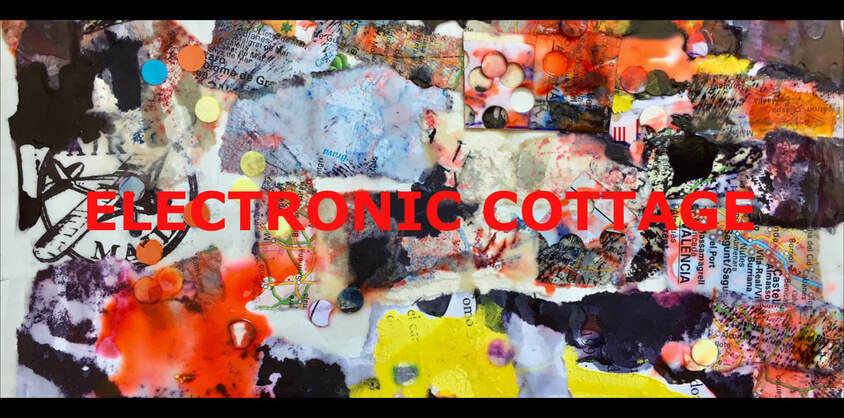
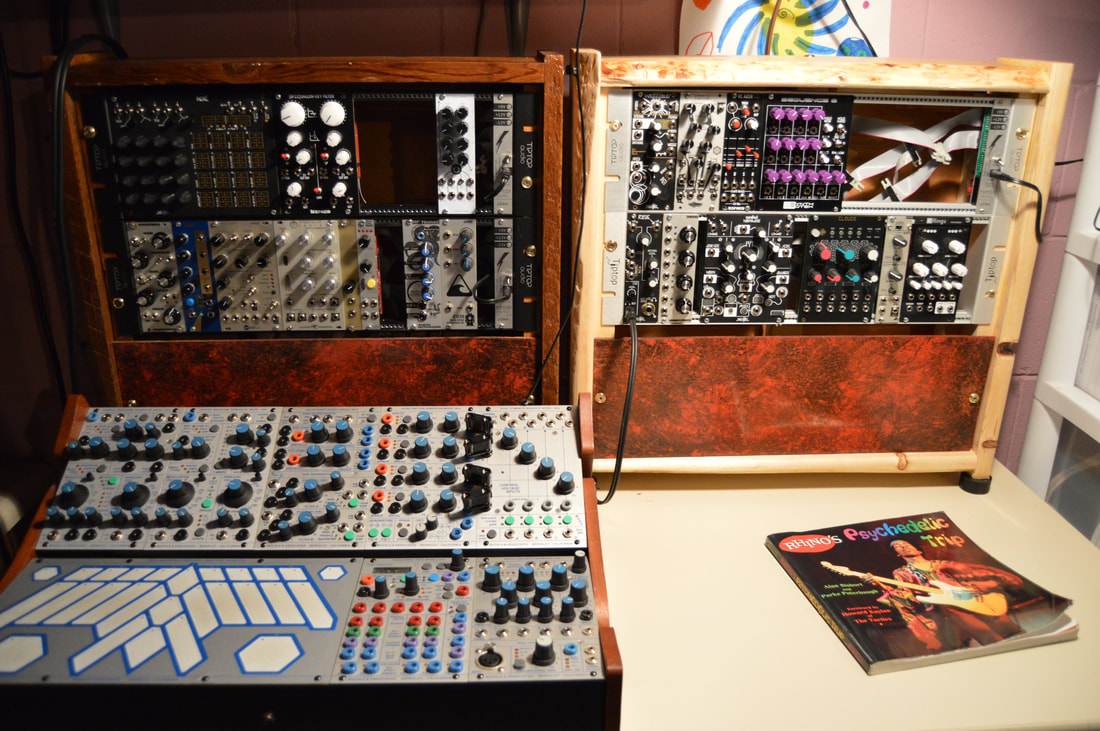
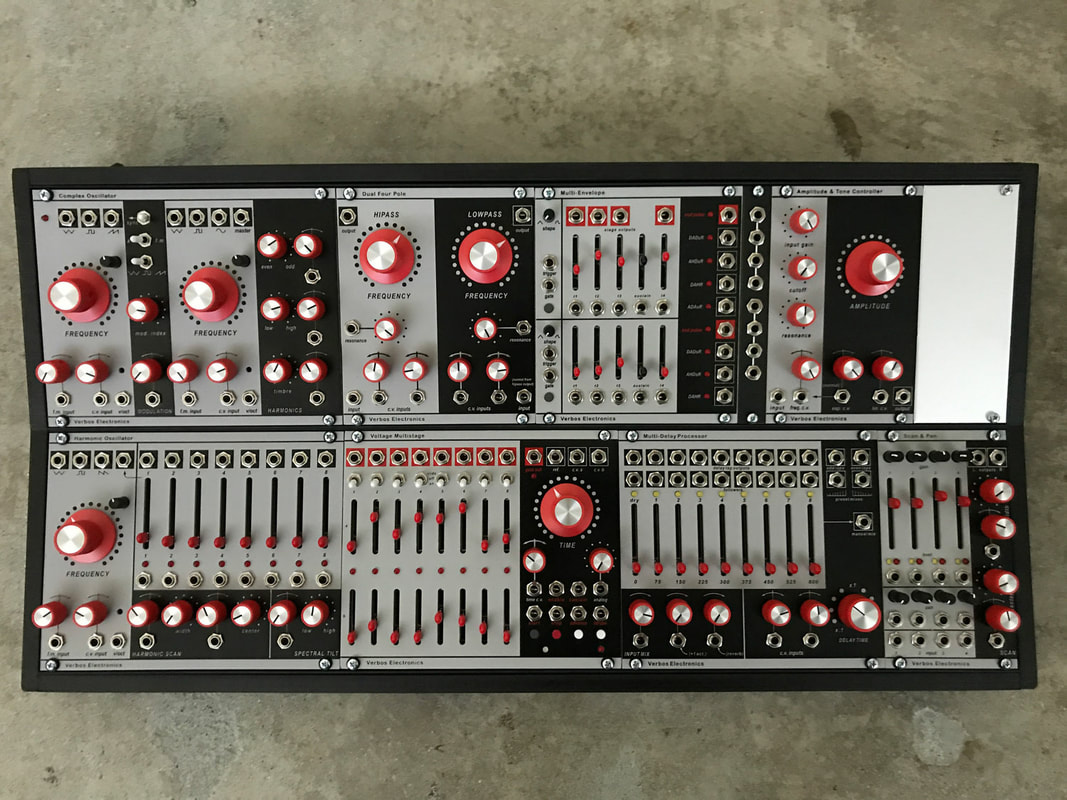
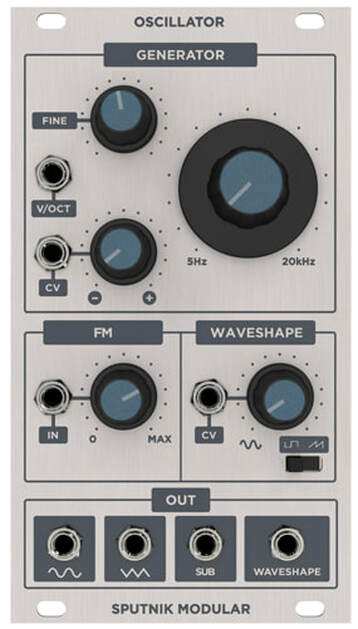
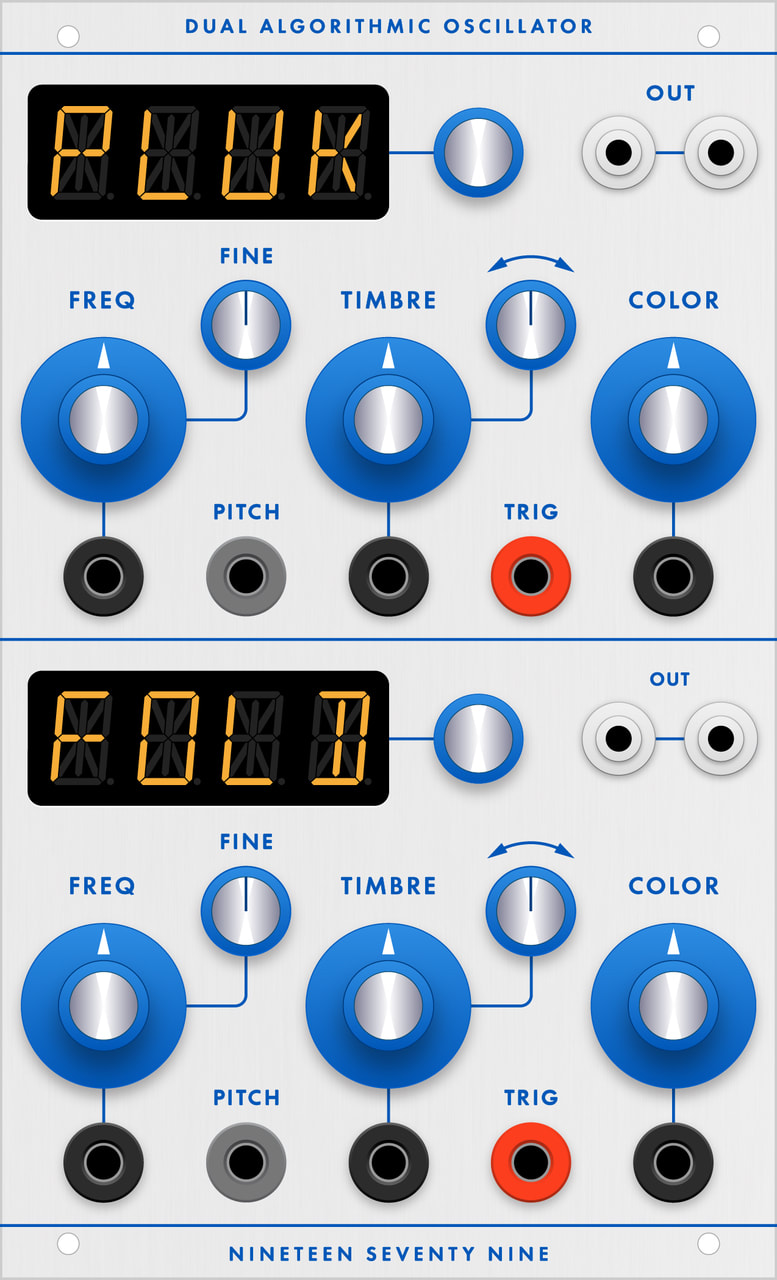
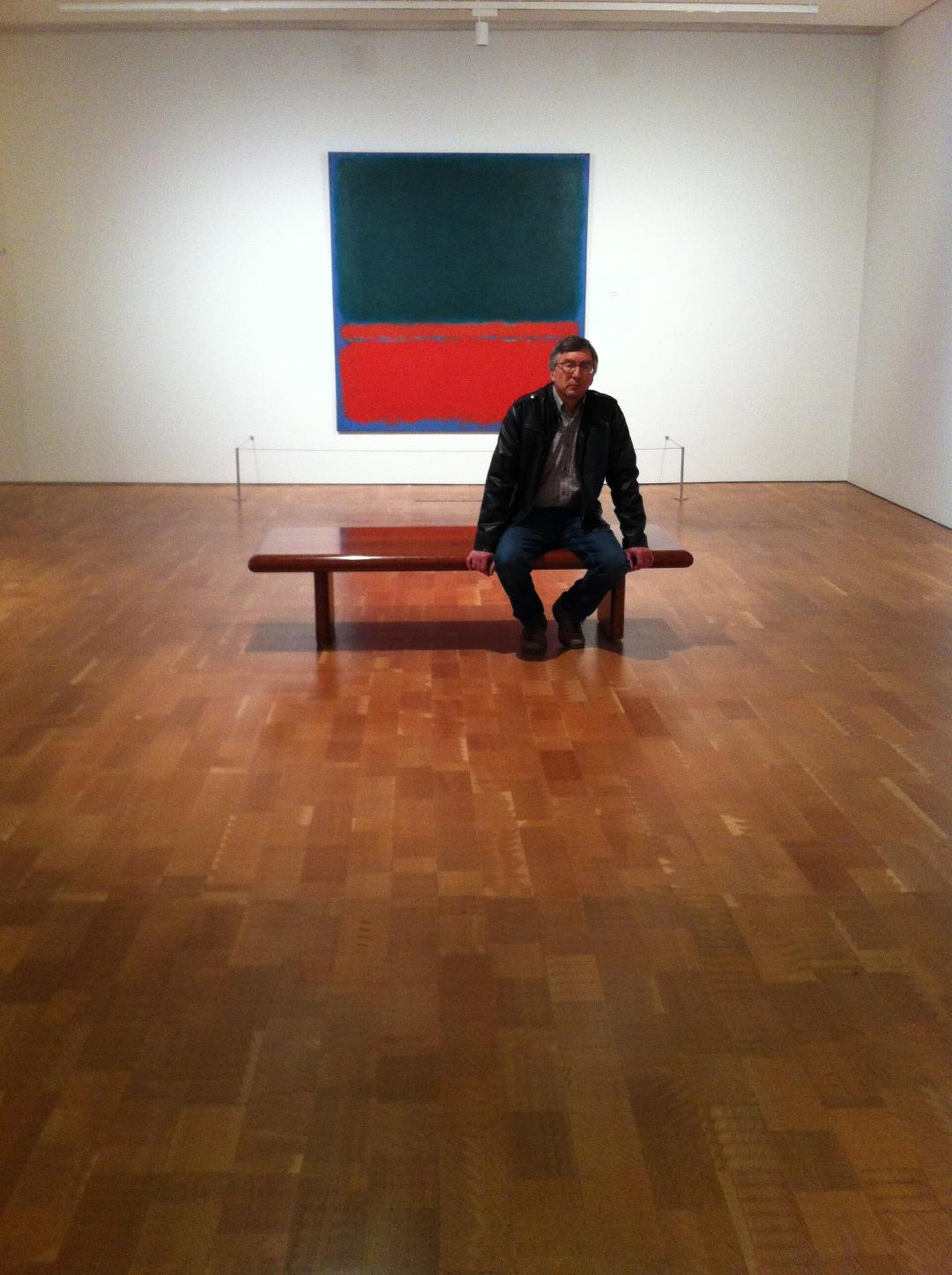
 RSS Feed
RSS Feed